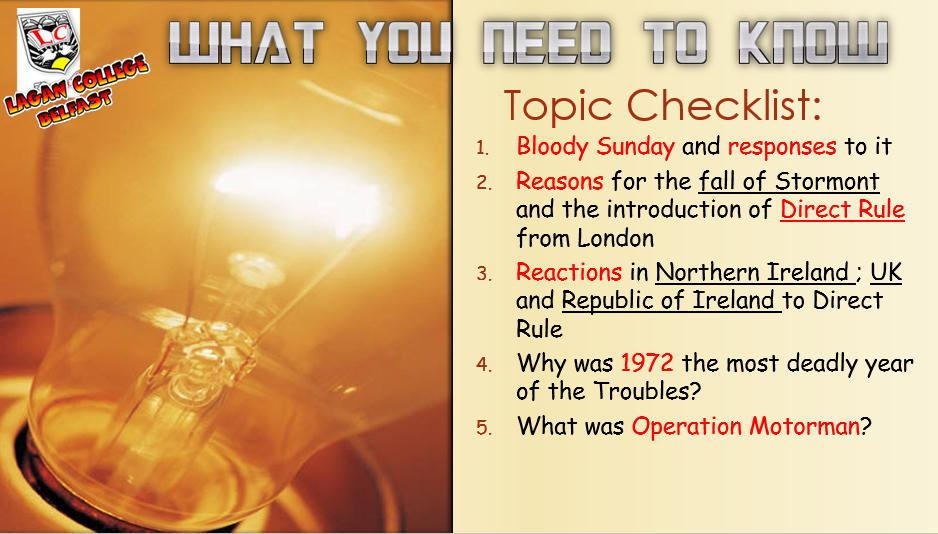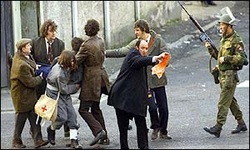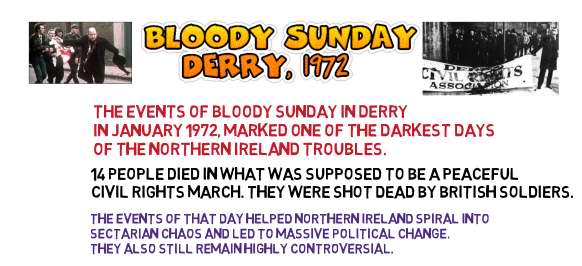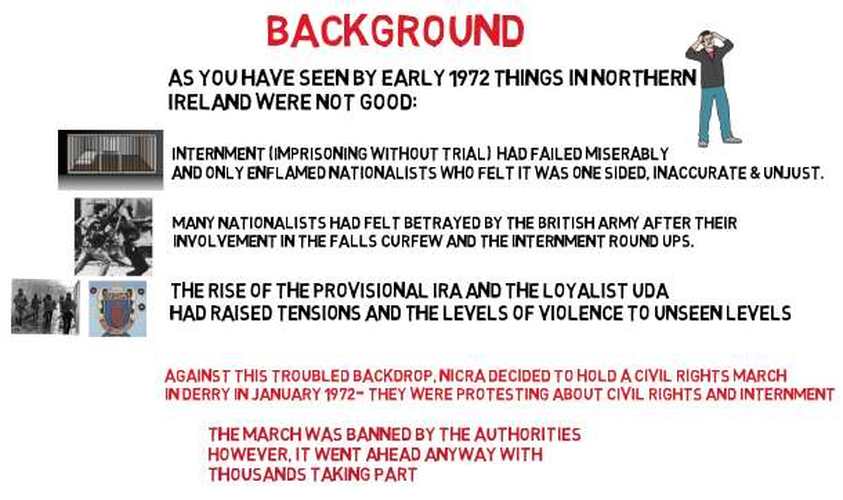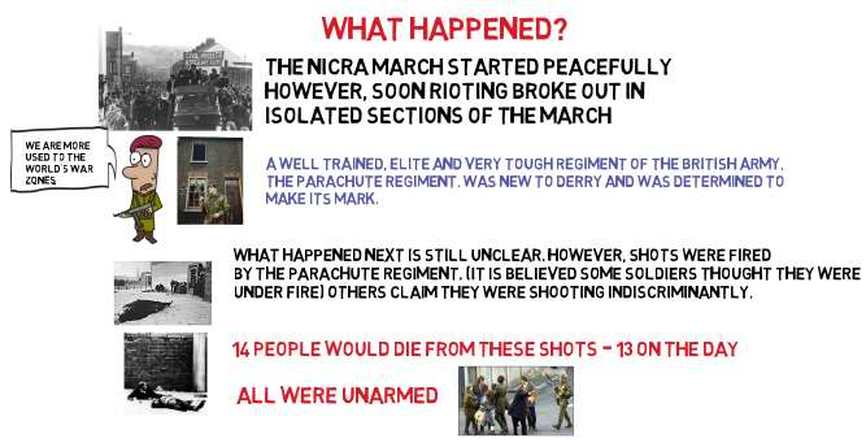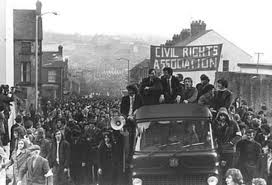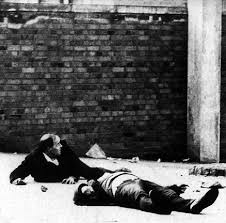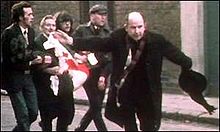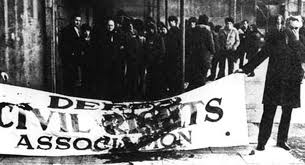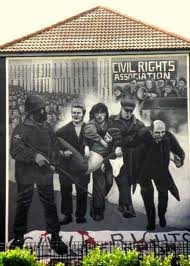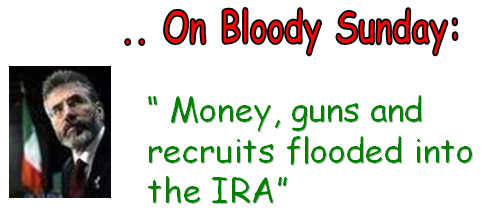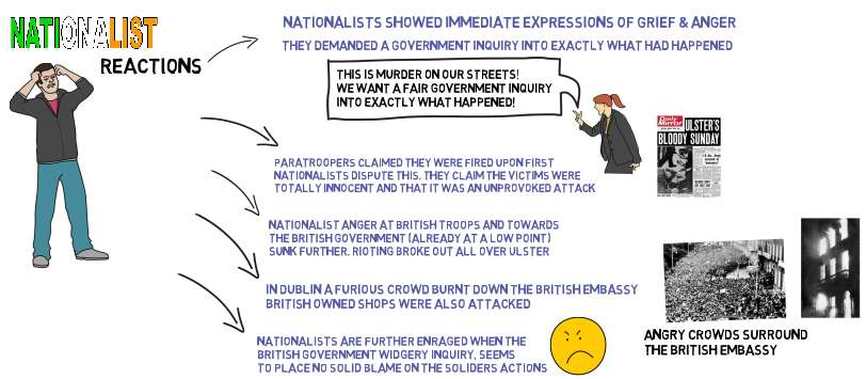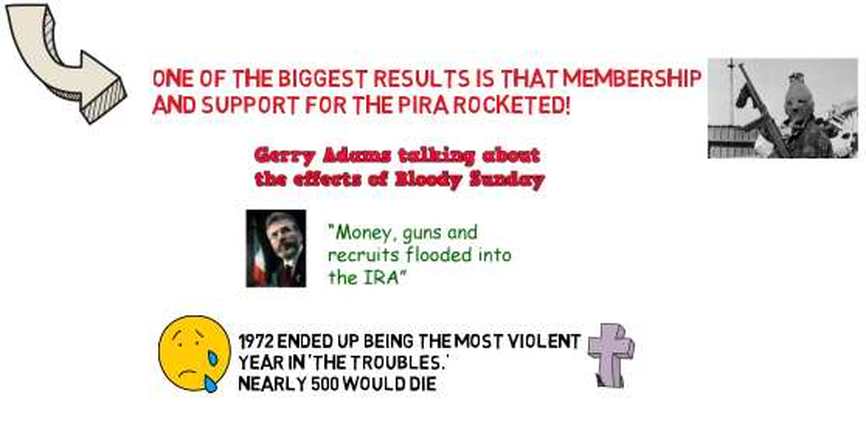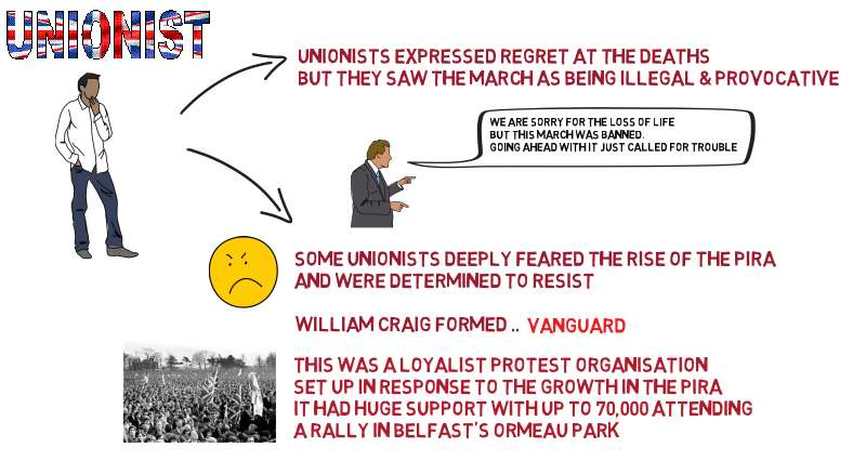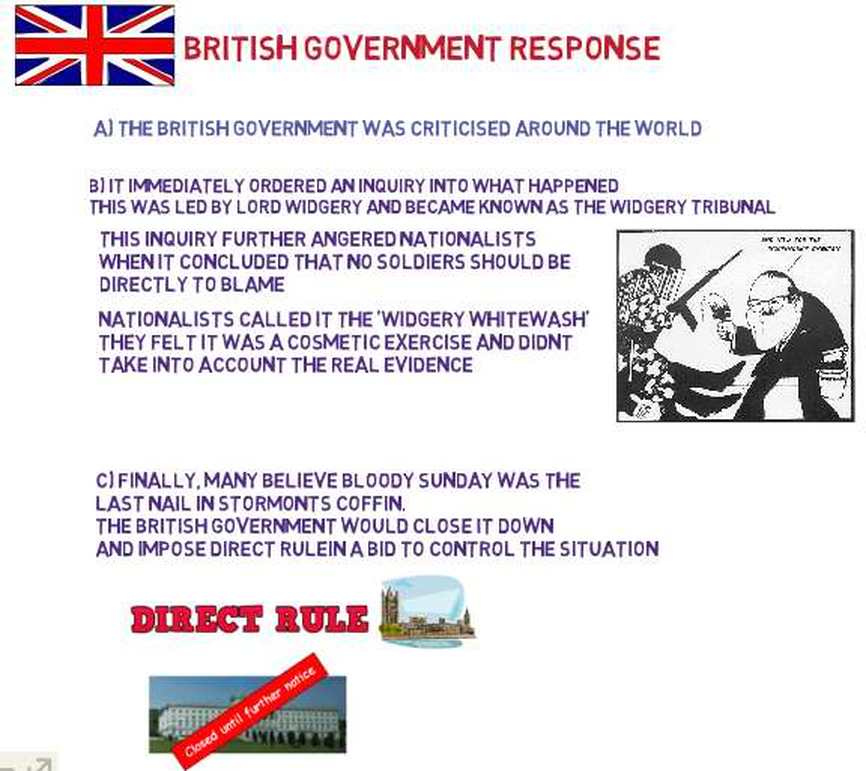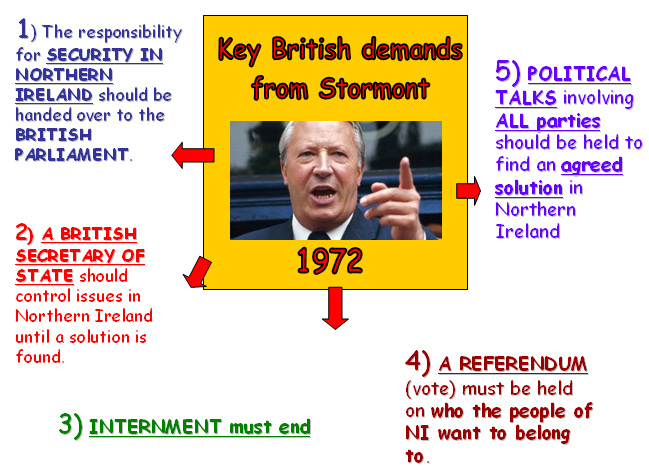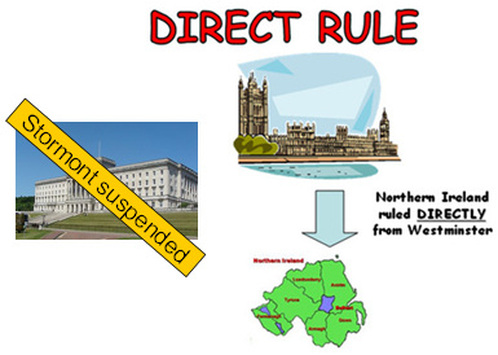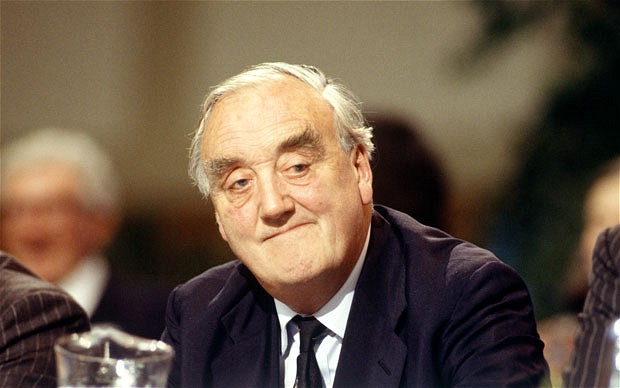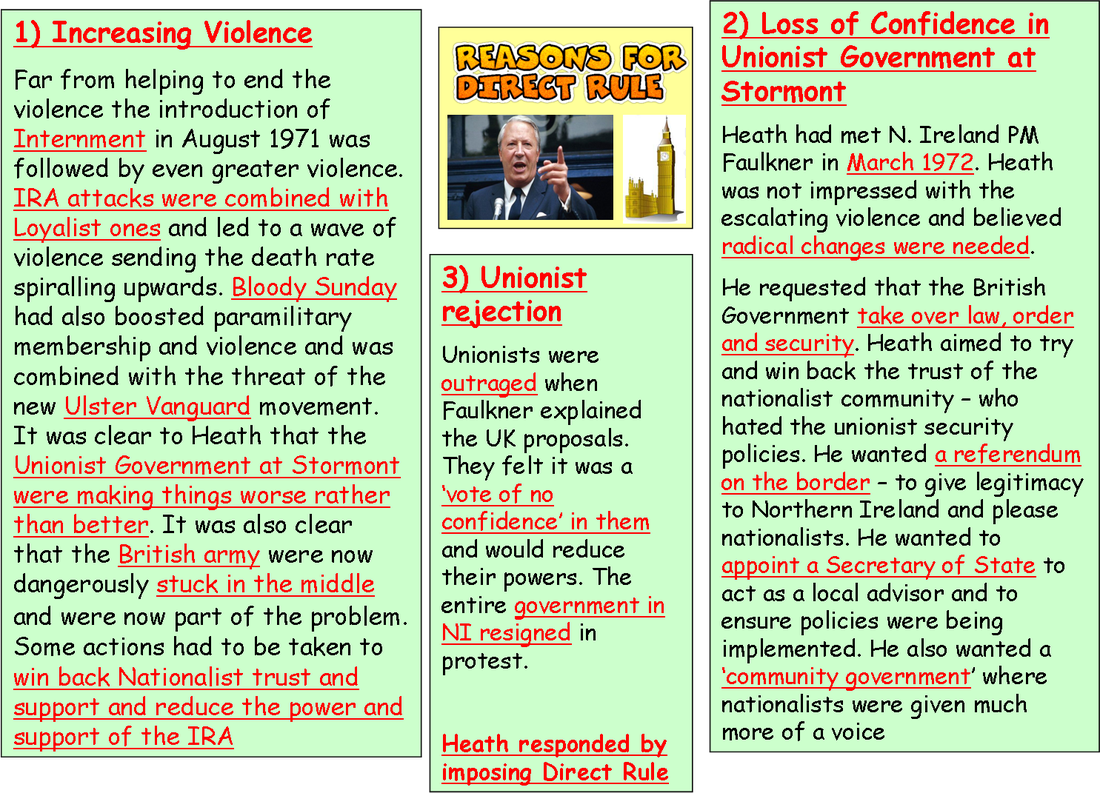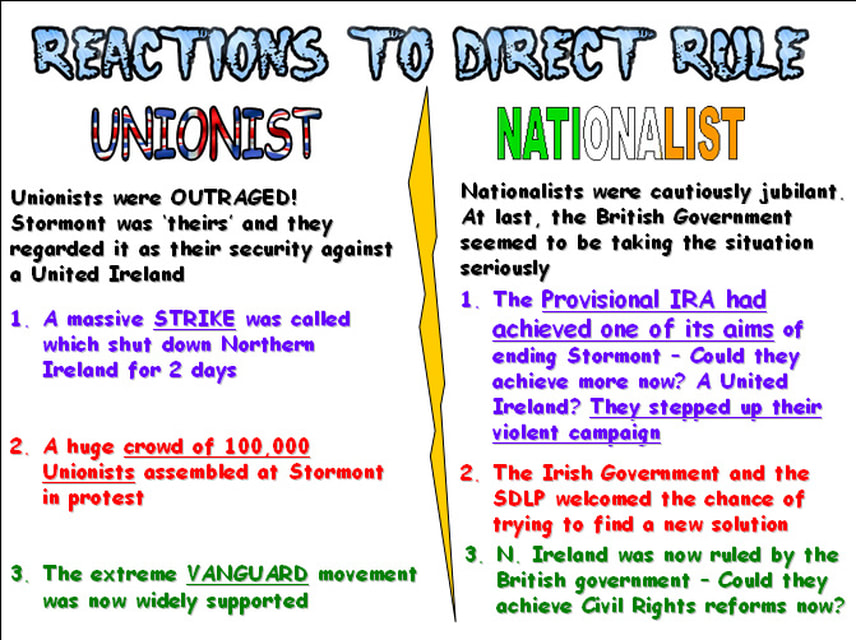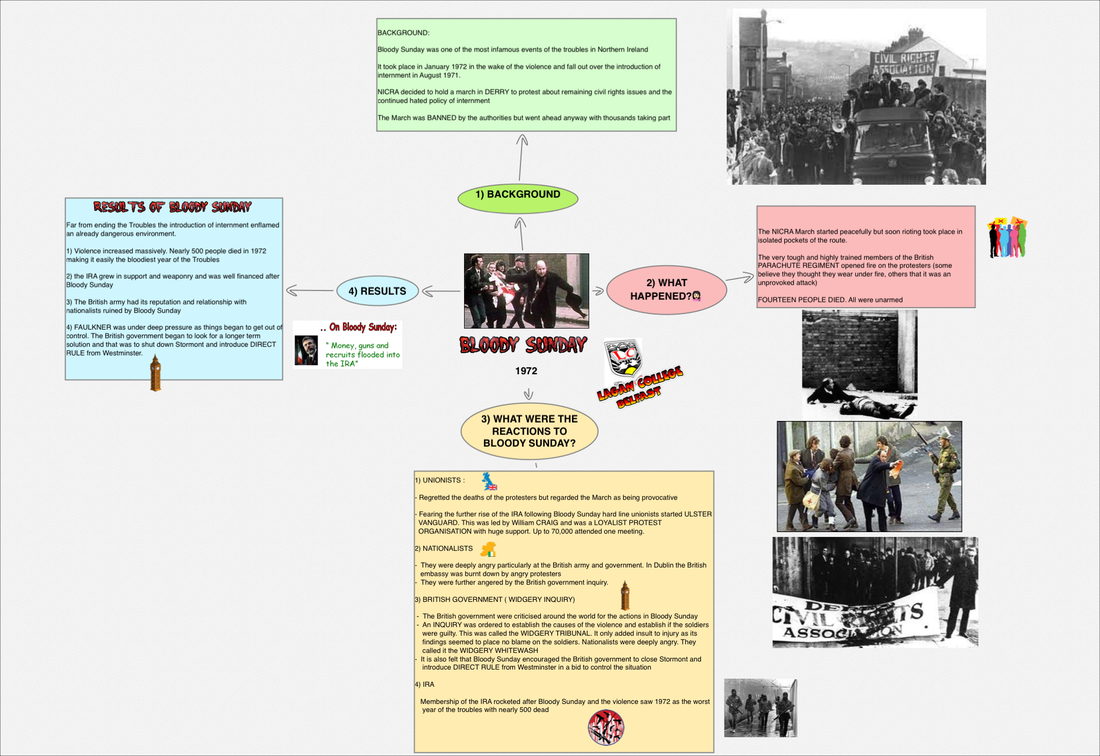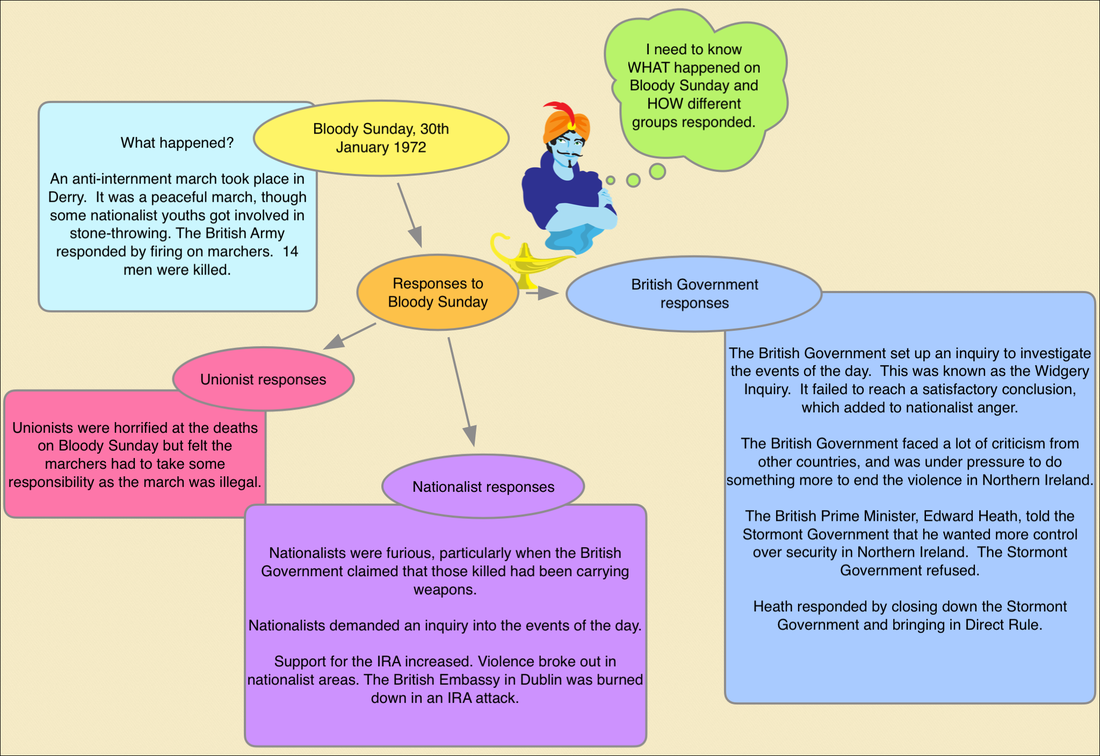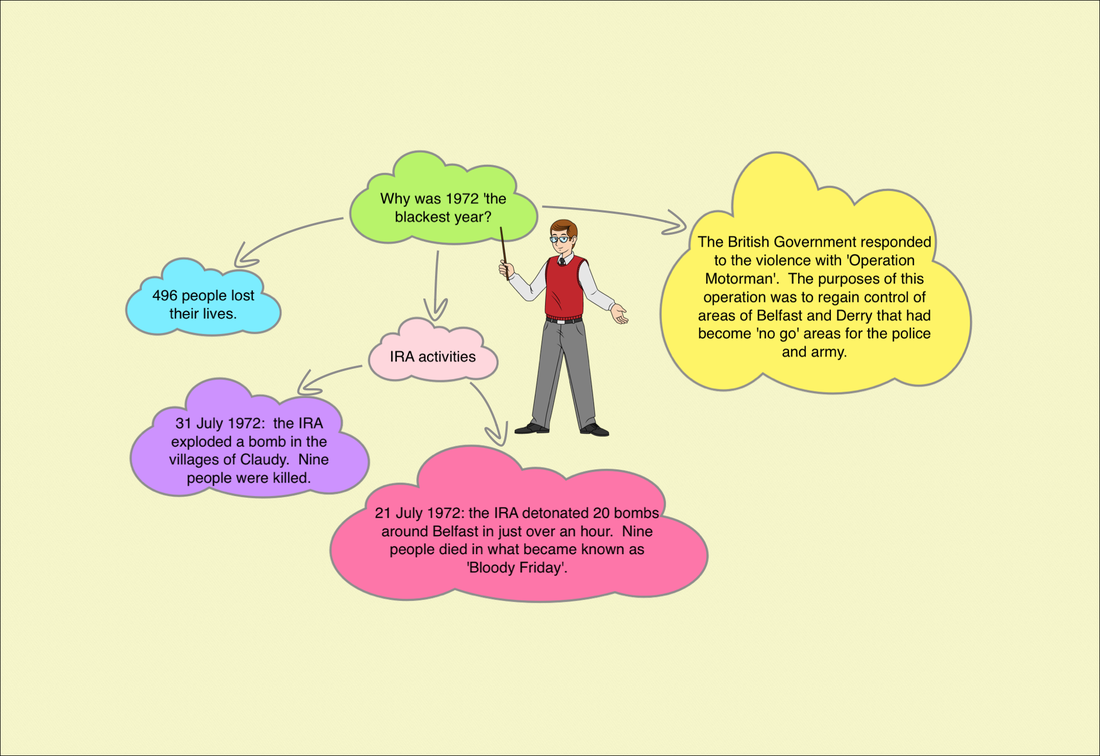Catholic priest Father Edward Daly, who later became Bishop of Derry and will always be associated with Bloody Sunday, witnessed the death of a seventeen-year-old youth as both ran away from soldiers. He said he saw the youth laughing at the sight of a priest running: ‘The next thing he suddenly gasped and threw his hands up in the air and fell on his face. He asked me: "Am I going to die?" and I said no, but I administered the last rites. I can remember him holding my hand and squeezing it. We all wept. We got him to the top of the street. I knelt beside him and told him, "Look son, we’ve got to get you out", but he was dead. He was very youthful looking, just in his seventeenth year but he only looked about twelve.’ |
‘A lot of the younger people in Derry who may have been more pacifist became quite militant as a result of it. People who were there on that day and who saw what happened were absolutely enraged by it and just wanted to seek some kind of revenge for it. In later years many young people I visited in prison told me quite explicitly that they would never have become involved in the IRA but for what they witnessed, and heard of happening, on Bloody Sunday.’' |
1) NATIONALIST RESPONSE:
2) UNIONIST RESPONSE
3) BRITISH GOVERNMENT RESPONSE
One of the biggest long term impacts of Bloody Sunday was the introduction of DIRECT RULE.
This was the suspension, after 50 years of the STORMONT Parliament and the introduction of DIRECT RULE FROM PARLIAMENT IN LONDON.
HOW DID THIS HAPPEN?
This was the suspension, after 50 years of the STORMONT Parliament and the introduction of DIRECT RULE FROM PARLIAMENT IN LONDON.
HOW DID THIS HAPPEN?
- The British public/government were shocked at the escalating situation in Northern Ireland and especially the events of Bloody Sunday. Things seemed to be getting worse, not better.
- They had lost confidence in the Unionist government to handle the situation.
- The Northern Ireland Prime Minister Brian Faulkner had reacted to Bloody Sunday with a demand to: 1) Re introduce the B Specials and
- After Bloody Sunday the British had other ideas and wanted to control SECURITY POLICY in Northern Ireland.
- When the Unionists refused this they were summoned to London where they were given a list of demands by the PRIME MINISTER, EDWARD HEATH.
LIST OF BRITISH DEMANDS TO STORMONT GOVERNMENT (1972)
HOW DID UNIONISTS REACT TO THESE BRITISH DEMANDS?
The Unionist government was dismayed. To sign up to these demands would mean an effective end to the Northern Ireland Parliament at Stormont as they knew it. (Of course the British knew this)
- In response the entire Northern Ireland Government RESIGNED in protest. They would not accept the loss of the key power of maintaining law and order.
- The British Prime Minister, Edward Heath, perhaps expected this. He immediately responded by IMPOSING DIRECT RULE OF NORTHERN IRELAND FROM THE BRITISH PARLIAMENT in Westminster. Initially this was supposed to be limited to 1 year but was later extended.
|
While Direct Rule was welcomed by nationalists, it did not stop the violence. In fact, 1972 turned out to be the bloodiest year of the Troubles.
Atrocities, bombings, shootings and riots became an everyday occurrence in Northern Ireland. There were over 2,000 bombings and 10,000 shootings in just 1972 alone. 496 people died as a result with thousands wounded. Some of the main events of this year are shown here > |
|
|
The IRA was heavily CRITICISED for the Claudy and Bloody Friday bombings, The reaction was so bad that the IRA realised it had suffered a set back.
The incidents also allowed the British army a chance to establish control over ALL of Northern Ireland NO GO AREAS: Since the Troubles began, certain sections of mostly Republican areas were sealed off and regarded as OUT OF BOUNDS or NO GO AREAS for the RUC and later the British army. This allowed paramilitary control of these areas. The British Government realised that these areas gave the paramilitaries the chance to recruit supporters and members, stockpile arms and allowed them some form of control. HOW DID THE BRITISH GOVERNMENT REACT? The Government's first main task after Direct Rule was to ask the British army to end these 'No Go' Areas and therefore hopefully end the trouble. In July 1972 a MASSIVE MILITARY OPERATION took place involving BRITISH ARMY TANKS, SOLDIERS, ARMOURED VEHICLES and EVEN A NAVY SHIP. This use of the British army leveled No Go areas across Northern Ireland including Derry. This operation was called OPERATION MOTORMAN WAS IT SUCCESSFUL?
|
OPERATION MOTORMAN
|
1972 PROVED A TERRIBLE YEAR OF BLOODSHED. THE TROUBLES WERE NEARLY 3 YEARS OLD AND MANY PEOPLE HAD ALREADY DIED. WITH DIRECT RULE AND OPERATION MOTORMAN, SEEMINGLY SUCCESSFUL, COULD A NEW POLITICAL SOLUTION BE FOUND AT LAST?
|
|
|
|
|
|
This mind map covers the whole BLOODY SUNDAY topic - Click on it to download the PDF. Use this to understand and revise this topic
© J Wishart / Rita Morgan 2017-20
